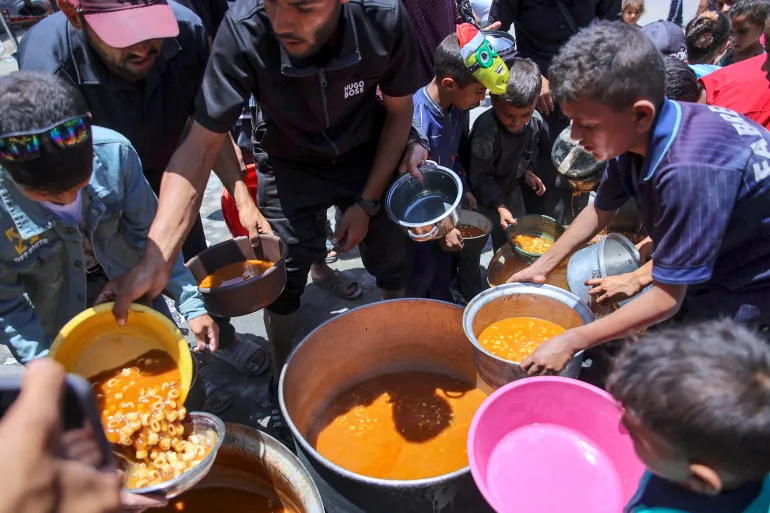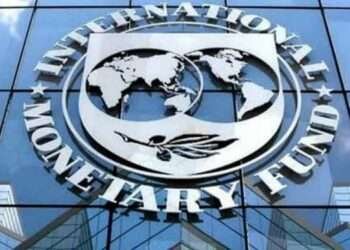The UN has given a damning indictment of the humanitarian catastrophe unfolding before the world’s eyes in Gaza.
In a new report, UN revealed that the extent of the forced hunger crisis imposed by Israel in its ongoing war, showing that some 495,000 Palestinians are experiencing “catastrophic” food shortages.
This crisis is not just about hunger. It’s about the erosion of dignity, health, and hope for 2.3 million people trapped in one of the world’s most densely populated and besieged regions.
In light of the report, World Food Programme’s Chief Economist, Arif Husain said that the world needs to take action now to avert famine in Gaza where nearly all of the territory’s 2.3 million people face acute hunger.
He explained that averting famine requires more than just food – it also requires clean water, sanitation, healthcare and medicine on a sustained basis.
Husain referenced the example of Somalia’s famine in 2011 in which 250,000 people died.
“Half of those people died before famine was declared,” Husain told reporters.
He said that if the UN and aid organisations have access to places where aid is needed, “we can improve this situation, but if we don’t have access, then it is not possible.”
Also, US-based Mercy Corps noted that the situation in the Gaza Strip “remains dire,” particularly in northern Gaza and in the southern city of Rafah.
“Desperate Gazans are trading clothes for money and a third of the population is resorting to picking up trash to sell,” the aid group said in a statement.
Vice President of Global Policy and Advocacy for Mercy Corps, Kate Phillips-Barrasso, said that “the world has been watching Gaza’s humanitarian crisis worsen for nine months.”
She added that Israel’s “Rafah offensive brought the aid response to a halt, thwarting the ability of humanitarian organisations to mitigate the suffering of 2.15 million people who are experiencing severe food insecurity.”
Phillips-Barrasso urged the international community to exert “relentless pressure” to secure a ceasefire.
“The population cannot endure these hardships any longer. The toll of military action has been far too high, and we fear without dramatic changes to the provision of humanitarian aid, the death toll will climb as people succumb to months of deprivation.”
Kate Phillips-Barrasso
Additionally, the Secretary-General of the International Federation of Red Cross and Red Crescent Societies stated that the food crisis in the coastal enclave has reached a “critical point.”
“Many people are already facing severe food insecurity, and the situation worsens each day. Children are especially affected, with many suffering from malnutrition,” Jagan Chapagain posted on X.
Chapagain added, “In Rafah, recent hostilities have exacerbated the already dire humanitarian crisis, disrupting food distribution due to supply shortages and severely impacting people’s health.”
Protection For Aid Workers Crucial
Israel has to take urgent steps to better protect humanitarian workers as humanitarian officials claim that conditions for civilians and aid workers have worsened since early May, when Israel launched an offensive in the southern city of Rafah.
The offensive has crippled what had been the main border crossing for food and other aid coming into the Gaza Strip.
the UN Human Rights Office noted that the killing, detention and enforced disappearance of health workers has had a devastating impact on the people of Gaza.
According to Steve Taravella, a Spokesman for the UN’s World Food Programme, aid workers trying to get shipments through the main remaining crossing, Karem Abu Salem (Kerem Shalom), face risks from fighting, damaged roads, unexploded ordnance and Israeli restrictions, including spending five or more hours a day waiting at checkpoints.
“Restoring order is crucial for an effective humanitarian response to meet soaring needs. UN agencies and others need a safe environment to be able to access people and scale up,” he added.
READ ALSO: Davido Sheds Tears of Joy as Chioma’s Father Blesses Union




















